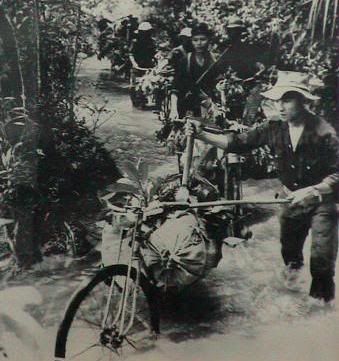Question #1: Do the bikes necessarily need to be ridden, or is it enough to strap a load to them and walk alongside? I'm thinking of PAVN troops on the Ho Chi Minh Trail, not so much mounted Swiss troops. Perhaps a bike or two per section or squad might take a significant portion of the load off the backs of some of the dismounts patrolling in Afghanistan.
Question #2: Would an e-bike be capable of charging batteries like the BB-2590/U in a practical manner?





 Reply With Quote
Reply With Quote




Bookmarks